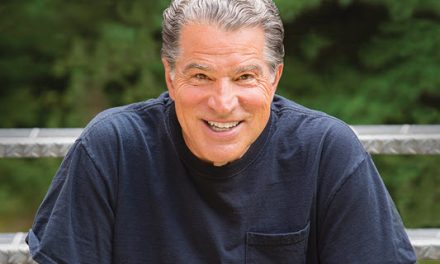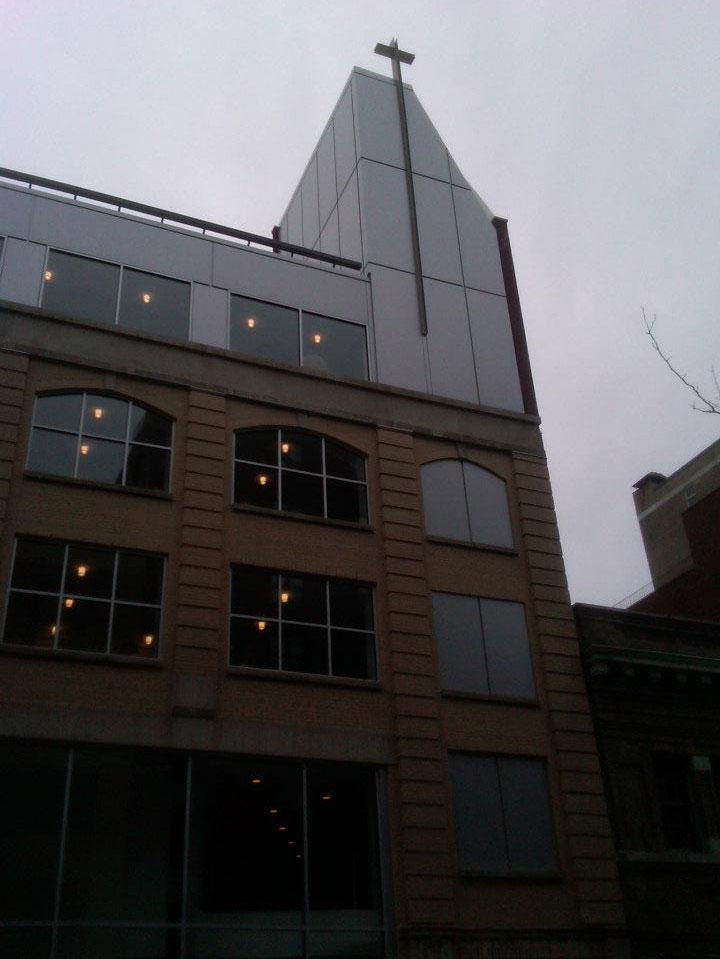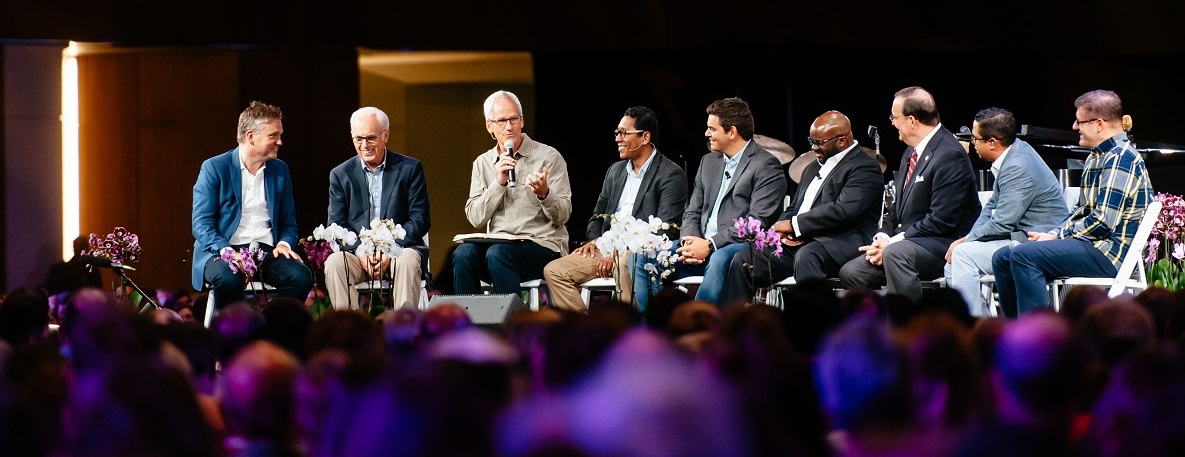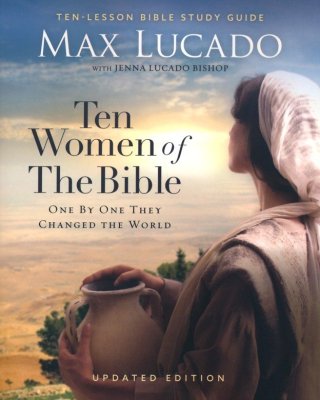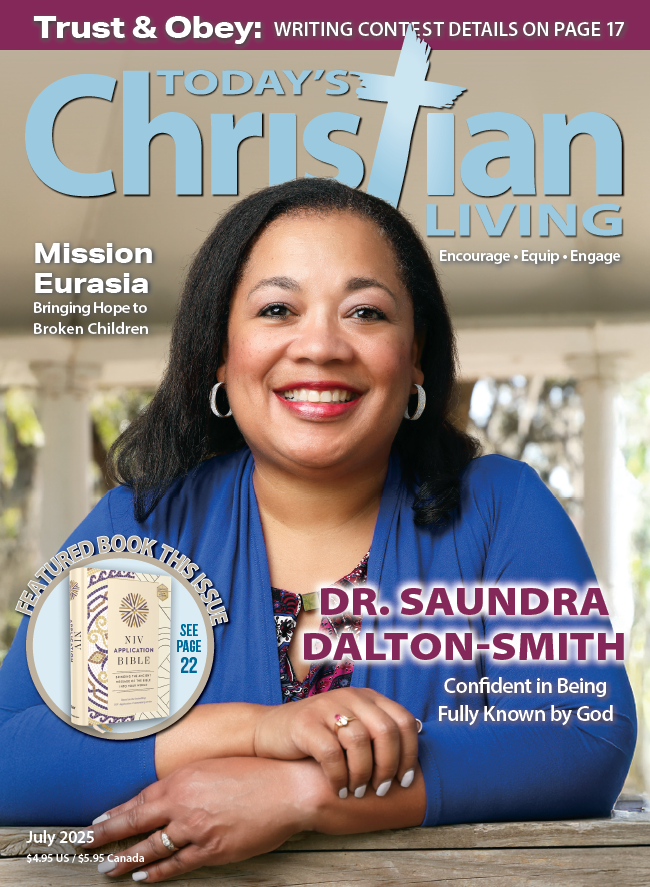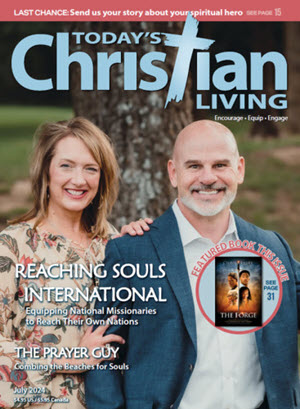Pastor and best-selling author Max Lucado likes to tell the story of an old sea captain who landed his ship on an island inhabited by natives who were happy and healthy, a sharp contrast to the inhabitants of other nearby islands.
Shortly after he arrived on the island, the captain began hearing miraculous stories of a certain missionary, Father Benjamin, to whom the islanders attributed their success, good health and happiness.
The Captain asked to be taken to see where the Father lived.
The Chief nodded and signaled for two tribesmen to follow. They guided the Captain through an expansive medical clinic, school, rich, irrigated fields, and finally a chapel located high on a mountaintop.
“Is this where Father Benjamin lives?” the Captain asked. “I would like to speak with him.”
The chief and the natives suddenly became serious. “That is impossible,” the Chief said. “Father Benjamin died many years ago.”
Bewildered, the Captain said, “I asked where Father Benjamin lives. You showed me a clinic, a school, rich fields, and a chapel. You told me nothing of his death.”
“That is true,” the Chief responded. “You didn’t ask us about his death. You asked us to show you where he lives. And we showed you.”
Where Do You Live?
Max Lucado calls one of his latest books, Outlive Your Life (Nelson, 2010), a “sharp departure” from his earlier works, a whopping 50 titles that have sold more than 65 million copies and counting, which he describes as “devotional books.” This one, he says, is a call to action.
“I wrote this book to help answer a question that so many believers ask themselves: ‘Does God use people
like me, and if so, how?’” Lucado explained. “And the answer is a most definite yes, and all we have to do is look to find the opportunities where God calls us.”
Lucado’s book was inspired by a recent trip he took to the nation of Ethiopia, where he witnessed poverty, hunger, disease and loss on a scale he had never witnessed before.
“In the past 12 months, I have taken four international trips to Honduras, Ethiopia, Mexico, and Brazil. My heart has been moved as I see what God’s people are doing for the poor around the world. And these armies of compassionate Christians have reaffirmed my belief that the sign of the saved is a love for the least.”
“As we look around and see all of the problems in the world today, it’s so easy to feel overwhelmed and tiny in the face of so much poverty, disease and hopelessness,” Lucado said. “The trouble is that’s where most of us throw up our hands and say that we are just one person and there’s nothing we can do. But can you imagine what would not have been done if more people had that attitude? The truth is, God doesn’t call the equipped. He equips the called.”
And equip us He has. In fact, Lucado says that this generation of Christians is the wealthiest, best educated, most intelligent and experienced of any before us. Today, we can travel around the world in less than 24 hours, and send a message the same distance in a microsecond. In terms of advancements in the fields of medicine and food production, we could eliminate diseases that kill more than 10 million people around the world each year with a shot, and erase hunger with a mere 2 percent of today’s world’s grain production.
Calling Joe Pot Roast
One look at the credentials of Christ’s disciples and it’s a wonder how they accomplished what they did. When the Master said, “Therefore go and make disciples of all nations…,” He wasn’t talking to prominent politicians, the rich, and the influential. He was talking to the lowest of the low, simple folk, fishermen and tax collectors. Despite this, those 12 men spread a story so bold, so mighty, controversial, head-spinning, and life changing, that even the date on your morning newspaper is a testimony of the importance of both Christ and His message.
“We so often think that there’s nothing we can do about any of these big problems in this world, but that’s a copout,” Lucado said. “Instead, all it would take is a little math to prove that anyone who held that opinion is wrong. For example, there are millions of children in the world today who are orphans. By contrast, there are enough Christians in the world today that if enough of them took in or sponsored a child, we alone could wipe homelessness of these children from the face of the earth. I understand that’s not possible in many cases, where people are unable to adopt for a variety of good reasons, but it makes a point, and it also tells us that we can all do something.”
How to Outlive Yourself
“Have you ever wondered what your legacy will be after you are gone?” Lucado asked. “Whether you realize it or not, you will leave a legacy for better or for worse. The choice is up to you. Why not use the time you have to make a difference not only here and now, but for the future here as well as your future in heaven?”
Lucado is careful to point out that as the Scripture says, “Then the King will say to those on his right, ‘Come, you who are blessed by my Father; take your inheritance, the kingdom prepared for you since the creation of the world. For I was hungry and you gave me something to eat, I was thirsty and you gave me something to drink, I was a stranger and you invited me in. I needed clothes and you clothed me, I was sick and you looked after me, I was in prison and you came to visit me.’ (Matt. 25:34-36)
“This tells me quite simply that what I do for others
here prepares a legacy for me not only here on earth, but
in heaven as well,” Lucado said.
“A fellow I know who was a seminary student decided one day to cut every verse of the Bible that dealt with compassion out of his text.” Lucado said. “When he was done, there were more than 2,000 verses cut, and just a tattered shell of the text remained. The point is that when we cut compassion out of the Gospel, there’s not much left. The result is that we must live lives that are defined by compassion and mercy.”
What Can You Do?
Lucado calls readers into action, to lives of compassion, and urges them to:
• See the need: Why do a few of us have so much and most of us have so little? 1.75 billion people are desperately poor, 1 billion are hungry, millions are trafficked in slavery, and pandemic diseases are gouging entire nations. Yet in the midst of the wreckage, ours is the wealthiest generation of Christians ever.
• Come out of your shell: Compassion is a movement deep within—a kick in the gut. Perhaps that is why we turn away. Who can bear such an emotion? Especially when we can do nothing about it. Yet what if we could?
• Take Action: Could this be God’s strategy for human hurt? First, kind eyes meet desperate ones. Next, strong hands help weak ones. Then, the miracle of God. We do our small part, he does the big part.
• In Jesus Name: The sign of the saved is their concern for those in need. Compassion does not save them—or us. Salvation is the work of Christ. Compassion is the consequence of salvation.
• Do Good, Quietly: Don’t make a theater production out of your faith. Silence the trumpets. Cancel the parade. If accolades come, deflect them before you believe them. Slay the desire to be noticed. Stir the desire to serve God.
• Stand up for the Have-Nots: Get ticked off. Riled up enough to respond. Righteous anger would do a world of good. Poverty is not the lack of charity but the lack of justice.
• Drop Your Bias: We can’t outlive our lives if we can’t get beyond our biases. Who have you been taught to distrust or avoid? Don’t let class, race, gender, politics, geography or culture hinder God’s work. For the end of the matter is this: when we cross the field and cheer for the other side, everyone wins.
• Pray First, Pray Most: Traveling to help the hungry? Be sure to bathe your mission in prayer. Working to disentangle the knots of injustice? Pray. Weary with a world of racism and division? So is God. And he would love to talk to you about it.
• Love Him, Love Them: Compassion has a dozen advocates. But for the Christian, none is higher than this: when we love those in need, we are loving Jesus. It is a mystery beyond science, a truth beyond statistics. But it is a message that Jesus made crystal clear: when we love them, we love Him.
• Don’t Forget the Bread: Governments or secular relief houses don’t feed the soul. But we can. Not just help for this life but hope for the next. Along with the cups of water, plates of food, and vials of medicine, let there be a message of sins forgiven and death defeated.

